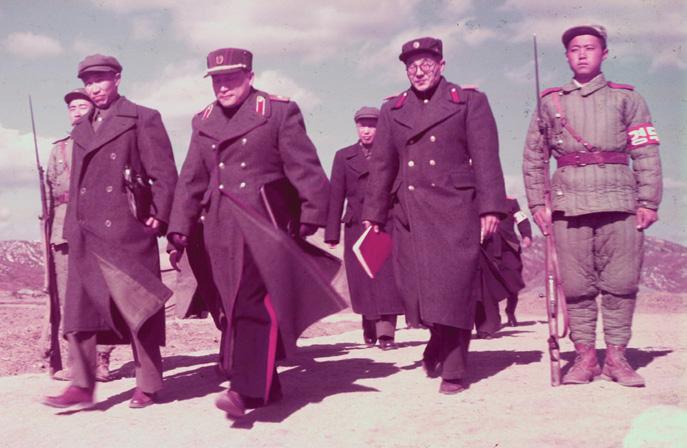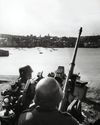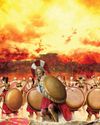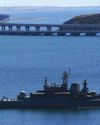Essayer OR - Gratuit
HOW TO END A WAR LESSONS FROM KOREA
History of War
|Issue 146
It took two years of negotiations for an armistice to be signed between the UN, North Korea and China. Even then, an official peace has never truly broken out. Is this the bleak blueprint that may be followed today?

The only thing harder than starting a war is ending it, especially in the absence of the prospect of an outright military victory. Such was the experience of Korea in the two years between July 1951 and July 1953, with Washington determining that the right thing to do was to wind the conflict down to a close rather than to seek victory in North Korea by physical conquest. The next challenge was to persuade the communists likewise, to seek a settlement. Settling on an end to the war with a still-divided Korea was not what either Kim Il-sung or Syngman Rhee - the respective leaders of North and South Korea - wanted, but in Washington's view it was the only way to end the fighting in a war for which victory was now accepted by most Western policymakers as an illusory objective.
What drove the Americans to the negotiating table was the realisation that they could never win a conventional war with China - even if they wanted to fight one - without the expenditure of vast human and material resources. Likewise, an ongoing war in Korea could risk a war in Asia that might prejudice the security of Europe where, it was commonly thought, the next communist blow would fall. There was simply no political commitment in Washington at the time for a fight with China, despite the acceptance in Washington that communist China was an enemy of the USA. Nor was there a desire to win the war by using any of America’s arsenal of 369 atomic bombs.
Cette histoire est tirée de l'édition Issue 146 de History of War.
Abonnez-vous à Magzter GOLD pour accéder à des milliers d'histoires premium sélectionnées et à plus de 9 000 magazines et journaux.
Déjà abonné ? Se connecter
PLUS D'HISTOIRES DE History of War

History of War
BATTLE FOR THE CHANNEL ISLANDS
In 1945, the Allies were ready with a daring amphibious operation to liberate Jersey and Guernsey by force
8 mins
Issue 152

History of War
THE BOYNE
Three crowns were on the line when two kings met in Ireland on a sweltering summer's day
11 mins
Issue 152

History of War
PARIS DAVIS
This pioneering member of the United States Army Special Forces received long-overdue recognition for his heroism rescuing comrades during the Vietnam War
6 mins
Issue 152

History of War
FALL OF THE SPARTANS
The powerful Greek city-state overreached itself and saw its influence decline as it failed to integrate conquered territories
4 mins
Issue 152

History of War
MASTERS OF THE SKIES
From rapidly evolving roles to new technologies, historian and airpower expert John Curatola discusses how fighter planes shaped the Second World War
9 mins
Issue 152

History of War
TEA WITH TRAITORS
A progressive educator celebrated her birthday with a tea party for dissident friends – unaware that a Gestapo informant was among them
9 mins
Issue 152

History of War
CHURCHILL IN THE TRENCHES
How Britain's future war leader earned respect and redemption on the Western Front
13 mins
Issue 152

History of War
"MORE DANGEROUS THAN THE 1950S"
Do we need to relearn the Cold War's fear of mutually assured destruction in our unregulated nuclear landscape?
3 mins
Issue 152

History of War
CRIMEA IN THE CROSSHAIRS
The Black Sea peninsular has been coveted by rival interests for centuries, with the current Russian occupation motivated by several factors
5 mins
Issue 152

History of War
ON THE BRINK
Any conflict between the US and China would almost certainly see the American mainland come under direct attack
3 mins
Issue 152
Listen
Translate
Change font size

